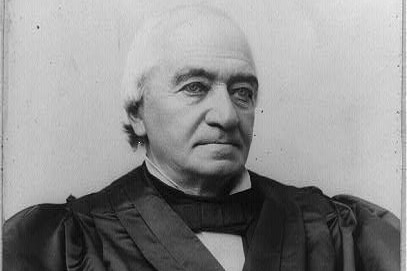The outcome was still up in the air on Jan. 29, 1877, nearly 12 weeks after the election, with Tilden one short of the 185 electoral votes needed. Twenty electoral votes were still unresolved because of competing submissions from South Carolina, Louisiana and Florida — where White Democrats had attacked Black Republican voters, prompting charges of interference — and from Oregon, where one electoral vote was disputed.
Nobody knew it at the time, but the process for deciding the election would end up destroying the rights of Black people in the South. For now, the focus was on picking a president before the March 5 inauguration.
So Congress created a 15-member electoral commission, consisting of five senators, five House members and five Supreme Court justices. The members were split evenly between Republicans and Democrats, plus Justice David Davis, a political independent. But then Davis, of Illinois, resigned to accept an appointment to the U.S. Senate as a Democrat.
To replace him, the commission turned to Bradley, a moderate Republican appointed by outgoing President Ulysses S. Grant, as the least partisan of the remaining justices. The 63-year-old Bradley, a former farm boy who became a wealthy New Jersey railroad lawyer, would be the potential tiebreaker.
Bradley was a “cold man” who “convinces by the force of his argument rather than captures by the brilliancy of his rhetoric,” the New York Herald wrote. “His mind is eminently judicial.”
The panel began public hearings on Feb. 1 in the Supreme Court room at the Capitol. (The court didn’t get its own building until 1935.) Justices on the commission didn’t dress in their usual black robes and “look odd without their gowns,” the New York Times observed.
Florida’s four electoral votes were the first up for debate. Bradley allegedly planned to back the legitimacy of the Democratic electors, making Tilden president, a Democratic congressman from New Jersey later alleged, but changed his mind at home that night under pressure from Republican friends. Bradley denied those claims. His vote created an 8-7 majority to accept Florida’s electors for Hayes.
Next up was Louisiana, and all eyes were on Bradley. “He is generally regarded as the man on who the whole thing turns,” the Louisville Courier Journal wrote. The justice again led an 8-7 vote for the eight Hayes electors, augmenting Democratic doubts about his objectivity.
Sure enough, Bradley joined the 8-7 majority to award Hayes one disputed electoral vote in Oregon and seven in South Carolina, effectively electing Hayes president unless Congress rejected the results. Furious Democrats focused their anger on the head of the vile “Bradley Tribunal.” Democratic newspapers sprinkled their pages with epithets about the justice: “The American Judas-Bradley.” “The umpire who stole a Presidency.” “Captain Kidd would have been a better man than Bradley in his place.”
The New York Sun wrote that the Washington Monument should be torn down and the stones piled up…
This article was originally published by a www.washingtonpost.com . Read the Original article here. .


























































